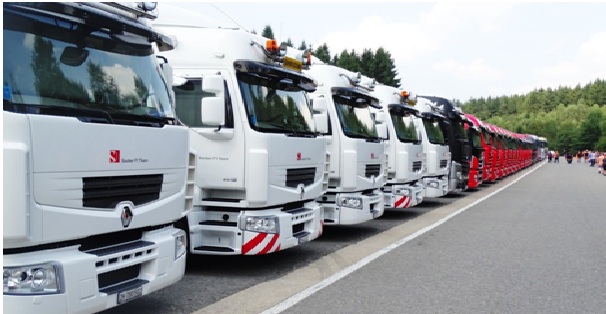Business
How will the Coronavirus outbreak affect moving businesses

There is hardly an entrepreneur in the world who does not feel the consequences of the pandemic in some form. The coronavirus outbreak will affect moving businesses in several ways, directly or indirectly. They will feel its impact in the future as well, even after the disease is contained. That makes the present moment a good time to assess all possible effects and adjust the business strategy.
The question is not if but how
At the beginning of 2020, the stock markets plummeted and caused fear of a recession the extended coronavirus pandemic is likely to cause, as well as due to quarantines and travel restrictions.
While the market saw somewhat of a comeback later in the year, it is still all sufficient to seriously distress a moving business that relies on people moving freely and being able to support that move financially.
The best thing an owner of a small business can do is to be vigilant, act responsibly during the coronavirus pandemic, remain in contact with authorities, focus on news from reliable sources, and be ready to adapt as the current situation requires. Moreover, a business should evaluate the risks that the current situation and its development present. The first step is to understand how the coronavirus outbreak will affect moving businesses.

Directly, coronavirus disease halts
- relocations due to job change
- residential moves
- international moving
- relocations due to military assignments
Indirectly, the outbreak affected the moving industry as open houses slowly dried up with social distancing measures in effect. Although the housing market has started to recover, both sellers and home buyers share the same health concerns and are reluctant to mingle. It has become even more apparent that housing and moving industries are intertwined and under threat in similar ways.
Moving for work and moving businesses
The current situation shows that companies can still operate with most of their employees working from home. Granted, there are still those whose presence is necessary at the workplace, but one of the impacts of the COVID-19 outbreak is that professionals are going to think twice and hard if coming to the physical offices is truly necessary, even in the future. People are finding working from home to be a far better option, regardless of the pandemic, as it allows them to spend more time with their families and, in some cases, define their own working hours.

Furthermore, business relocations do not seem like a priority at the moment. As most reasons for office relocation have a financial background, entrepreneurs may choose to weather out the pandemic first. Once the coronavirus is contained and they can determine the bottom line, they will likely give up on expansion on other markets and focus on covering the losses instead.
Residential relocations
The coronavirus outbreak has not affected only the owners of businesses, but employees, too. Also, the US moving statistics show that the most significant percentage of people who moved in 2019 either needed a new bigger home, wanted to establish their own household, or moved due to a new job or job transfer. People who planned to move their homes for various reasons currently worry about the future of their careers. In such an uncertain atmosphere, the residential move does not emerge as a priority. If people can’t afford to move, it reflects negatively on every business and professional in this chain.
Moreover, those who decide to relocate and need to refresh, renovate, refurbish or repair their new home are likely to face delays. Supply-chain problems have begun to affect moving businesses, regardless of the original location of the goods they rely on to conduct business. Most companies rely on suppliers from the Far East and are likely to experience shortages on specific stocks. Inevitably, as the shipping industry slows down, so do the service providers.
International and military moving
Moving overseas or moving internationally, in general, has ceased for the time being as countries shut their borders. Among those who most frequently relocate internationally to new job postings are the US military members. As the engagement of troops is essential in the fight against the spread of the coronavirus, their relocations halted. It is yet to be seen if a requested relief fund will be granted to hundreds of moving companies involved in military transfers. Even though they have legitimate concerns, they are not alone.

Bailing out businesses and industries most severely affect moving businesses due to coronavirus is what everybody expects from their country. However, in the light of the situation where every industry stretches to its limits, there is only so much any government can do to mitigate it.
What can moving businesses do?
Moving companies serving big cities, like New York and Chicago, will have to find a way to adapt to the new situation and its aftermath, and do so promptly. Any financial incentives from the government can only go so far.
The complacency that will come once COVID-19 is contained may drive the moving businesses to return to the market as usual, which does not appear prudent. If the coronavirus outbreak aims to teach us something, it is that investing in financial, operational, and strategic flexibility is a way to endure a global crisis.
Of course, that is not to say that moving businesses cannot still operate while following the guidelines present. People who decide to move long-distance during the pandemic have to take extra precautions during the process, such as placing sanitizing hand gels around the house and disinfecting each surface and item. It will require a certain dose of attention, but if the relocation cannot be postponed, these measures can make it more safe and manageable.
Potentially, moving businesses can consider broadening their range of services. Remaining solvent as long as possible increases the chance for recovery after the coronavirus threat subsides. Being constantly on the move seems to be the best course of action for the movers.
Conclusion
Without the need to appear unreasonably optimistic or pessimistic, the extreme disruption caused by the outbreak will eventually balance out. However, the balance does not necessarily mean that things are going to return to their previous state. The COVID-19 epidemic will take a significant toll on the economies in general and will leave a lasting impact, if only as a warning that such a global crisis can repeat in the future.
Responsible businesses must be aware that the only way to endure and stay competitive in the market is to adapt. Risk assessment is only the first step but a key one, as it provides vital information and directions. The amount of maneuvering space in the aftermath of COVID-19 will prove to be a determining factor for survival, not only for moving businesses but a great many others.





















































